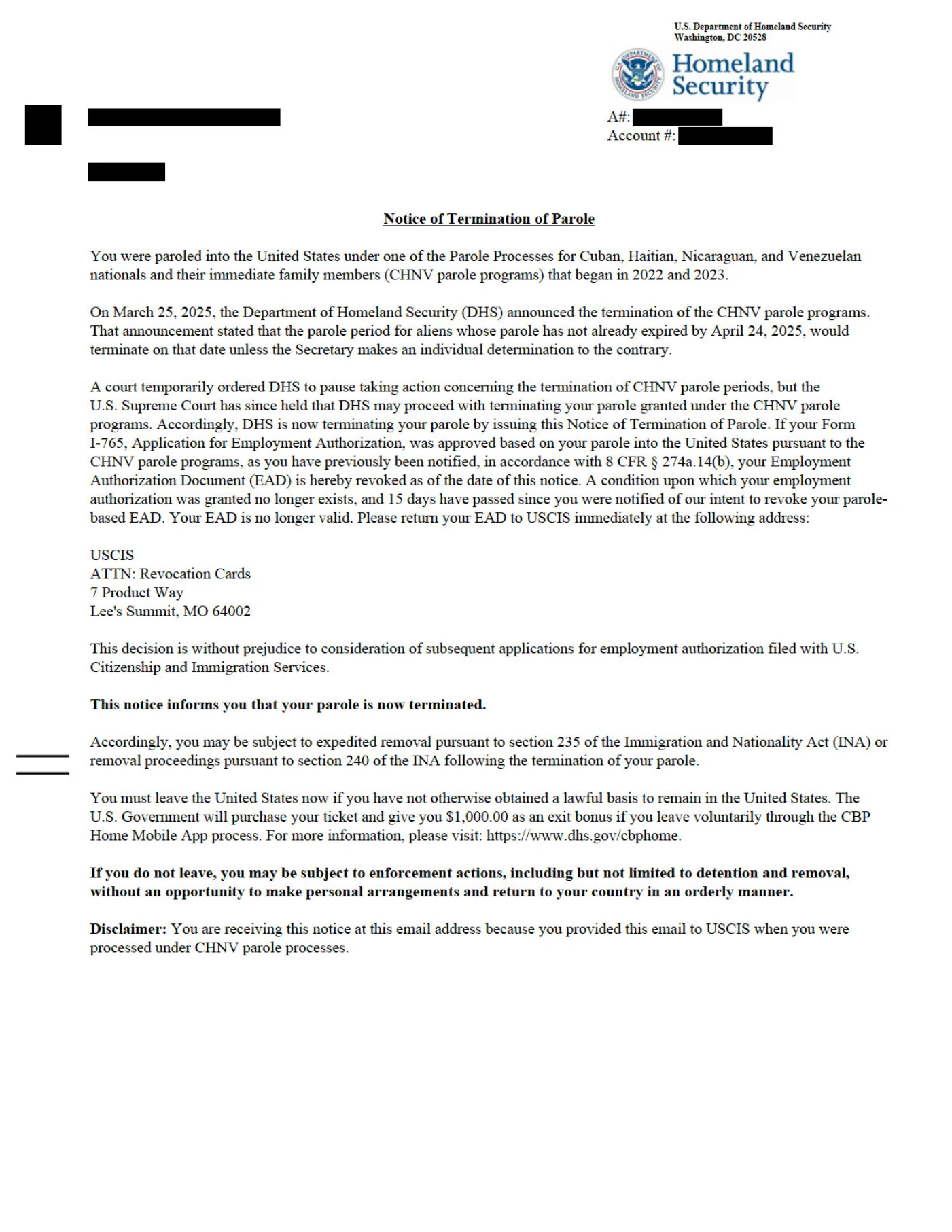
Written by ASAP’s expert immigration lawyers · Updated
The government sent a notice ending parole early for immigrants who received parole through the “CHNV” program for Cuba, Haiti, Nicaragua, and Venezuela. CHNV parole and work permits based on CHNV are now ended.
Immigrants had filed a lawsuit to stop this change temporarily, but on May 30, 2025, the Supreme Court said that the government could end CHNV parole. Immigrants are continuing to fight the lawsuit. Learn more here.
The government says that it plans to deport people who had CHNV parole, if they do not have another pending immigration application. If you do not already have another pending immigration application, you can consider applying, if you are eligible. Some people with CHNV parole could be eligible for asylum, the Cuban Adjustment Act, or other options.
However, submitting a new immigration application can be a complicated decision that depends on your specific circumstances. Also, having a pending application does not necessarily prevent someone from being detained. Every time you complete a new application, you are providing updated information to the government that they may not have already.
If you wish to speak to a lawyer about your options, you can find legal help. You can also read more about how laws are changing and safety measures to take. You can also find more information about the CHNV parole lawsuit here.
The Asylum Seeker Advocacy Project (ASAP) aims to provide factual information about current immigration laws. This information is not legal advice.
All legal content is written and legally reviewed by ASAP’s team of expert immigration lawyers. ASAP’s expert lawyers have decades of experience in immigration law and litigation. Collectively, they have won hundreds of cases. Our lawyers are admitted to the Bar in several U.S. states, hold law degrees from universities including Harvard, Yale, and UCLA, and have won multiple awards for their legal work.